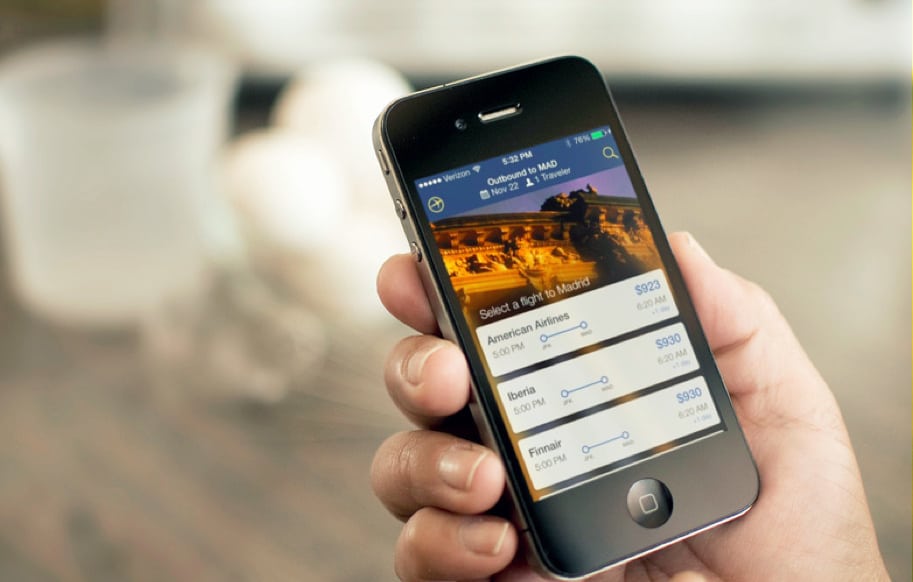Skift Take
The World Cup is a perfect example of how sports fans are less likely to wait to book travel to games for fear flights, hotels and game tickets will sell out. They're likely more impulsive with making travel decisions and will often make them on the go, where mobile devices are at the ready.
This summer’s World Cup in Brazil offers some lucrative lessons for future large-scale sporting events looking to reach fans’ wallets on the go.
Latin America saw the largest seasonal increases for mobile booking from January to June this year, coinciding with the FIFA World Cup and rising 42% during that time, 20% higher than the U.S. and 40% higher than where Europe ended in June.
The findings come from a recent Criteo Travel Flash Report, which examined more than 1,000 travel websites’ traffic for the first six months of 2014 and analyzed 300 million bookings which had more than $150 billion in value.
This doesn’t imply Latin America is eclipsing the U.S. or Europe for mobile bookings, as Brazil, for example, had only 7% of its bookings on mobile from January to June. Still, the influx of mobile bookings from this region provides some insight into booking habits of sports fans who likely want to make booking decisions quickly to not miss any game action.
There’s been a lot of chatter during the past few years about the rise of mobile bookings and when they’ll overtake desktops as online travel agencies’ (OTAs) chief revenue sources. Now, we finally have proof this premonition is closer to happening.
For the first six half of 2014, global mobile bookings were up 20% from January to June, compared to desktop bookings increasing only 2%. As hotels and airlines tinker with how to lure travelers onto mobile, it appears the largest shares of bookings don’t belong to these categories.
Instead, apartments and cruises held the largest shares of mobile bookings in June, at 34% and 31%, respectively. Hotels and airlines claim about 20% and 15%, respectively.
The main question is: what are the values of these bookings?
For the U.S., 62% of mobile bookings for air travel are more than $500 in value, while 90% have more than $300 in value. For iPhone and Android bookings, values are highest for travel packages and cruises, each with about $1200 values on average.
Desktop still remains the dominant booking mode for packages which require multiple browsing tabs and yield an average of about $1700 more per booking compared to mobile.
Airlines saw the largest increases for last-minute mobile booking values during the first half of this year, an average of 21% higher than last-minute desktop booking values. Car rentals’ last-minute values on mobile were 13% higher than those on desktop, and hotels actually saw 30% lower values for last-minute on mobile versus desktop, given that last-minute hotel stays tend to be for same day and are generally for shorter stays with lower values, the report said.
The Japanese are the most likely to book via a mobile device, with about 25% of that population booking via mobile, followed by Australia, the U.S., Italy and the U.K., all ranging from 18 to 22%.
See the full report below for further analysis and findings.
The Daily Newsletter
Our daily coverage of the global travel industry. Written by editors and analysts from across Skift’s brands.
Have a confidential tip for Skift? Get in touch
Tags: mobile bookings, online travel agencies, world cup
Photo credit: Expedia's mobile app. PlaceIt by Breezi
